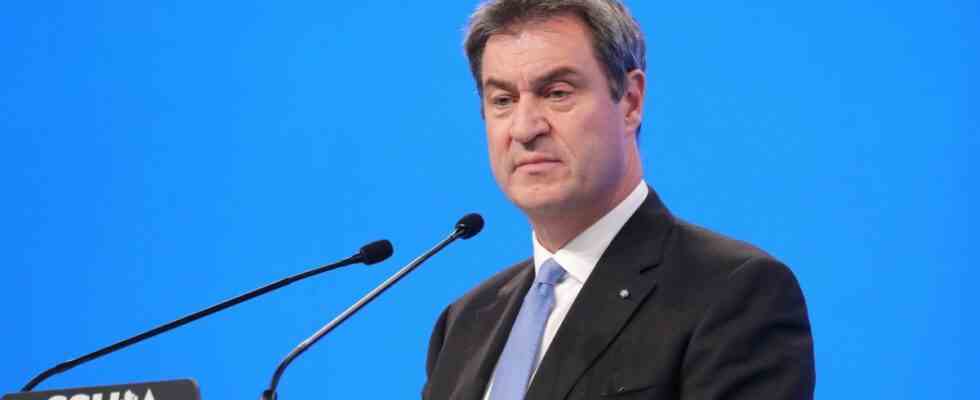In the ZDF “Morgenmagazin” the Bavarian Prime Minister Markus Söder again criticized the plans of the traffic light coalition for the citizens’ benefit, which is to replace the previous Hartz IV basic security in the coming year. “This citizen money is simply going in the wrong direction,” says Söder, who fears social upheaval among people in lower income groups. It is absolutely unfair that, for example, cashiers, bus drivers, police officers and hairdressers in Berlin or Munich end up having less money when they work than when they don’t work. Söder also considers the planned high level of protection to be unfair.
SPD General Secretary Kevin Kühnert responded to the criticism on Deutschlandfunk that his party did not think it was fair that people who have always worked a lot and “got into trouble due to external circumstances” should use up all their substance. Kühnert also did not accept the argument that the higher citizen income rates reduce the incentive to work. The difference between employed persons and recipients of transfer payments must be made clear by the earned income. Among other things, the government has increased the minimum wage and the income limit for mini-jobs.
The SPD chairwoman Saskia Esken had previously signaled a willingness to talk in the dispute over citizen income. “If the federal states led by the Union want to clarify detailed questions about citizen income, we are ready to do so,” she told the newspapers Funke media group. The CDU had threatened to block the law introducing citizen income, which required approval, in the Bundesrat. There has been a long-standing dispute in the ongoing legislative process. It is therefore unclear whether the traffic light can push through the reform as planned. In the Bundesrat, she is dependent on votes from the camp of the Union countries.
The goal is less pressure from the job center
A blockade could also affect the already tight schedule, with January 1st scheduled for launch. The aim of the traffic light coalition is to put those affected in a position to be able to concentrate more on further training and looking for work. They should be put under less pressure by the job center. The standard rates of basic security should increase by around 50 euros per month.
Unemployment benefit II, better known as Hartz IV, introduced under Chancellor Gerhard Schröder in 2005, has long been considered in need of reform. The SPD in particular had set itself the goal of fundamentally changing the old Hartz IV system. The changes affect almost five million benefit recipients and 405 job centers with almost 75,000 employees.
In the past, there had always been great criticism of the sanctions that Hartz IV recipients had to fear if, for example, they did not comply with agreements with the job center. There is dissent between the SPD and Greens on the one hand and the FDP on the other, both on the future scope of the sanctions and on the recalculation of the standard rates. The question of whether there should be a new basis for calculating citizen income that will lead to a significant increase is a question on which the SPD and FDP have not come close so far.

